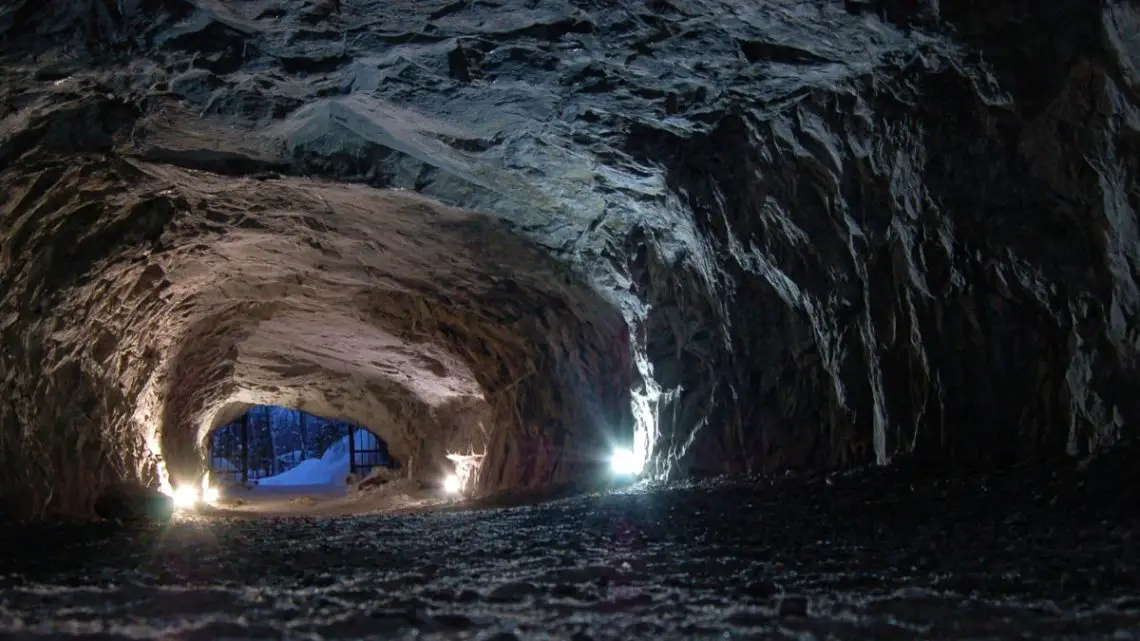
Massive Find of Natural Hydrogen: The Overlooked Asset in Our Energy Scenario
July 8, 2023When H2 can be found naturally, why is the focus on producing it artificially?
Natural hydrogen is the term used for H2 that is naturally occurring in the ground, air, or other sources.
This isn’t an area where the majority of research and resources have been focused.
Natural hydrogen is also known as native or white H2. While it is the form that is already there in the form used for fuel and energy storage, it is not the form where the majority of resources and research have been aimed.
Click to learn more about what the different hydrogen colors mean.
The reason is that it’s quite rare for H2 to be found naturally in any quantity that could be considered usable or practical by the energy industry. Though it is the most common element in the universe, it is also the lightest. Therefore, once it is released into the air, it floats upward until it escapes into space. Therefore, it isn’t found in any real quantity in the air. This would require us to have to look underground for stores of it, if it is to be found anywhere on Earth.
Interestingly, such a discovery recently occurred in France, and it is attracting considerable attention.
In May, La Française D’Énergie (FDE) was working in the Lorraine region’s abandoned mines, seeking to measure the risk of firedamp pockets. While doing so, they discovered a massive natural hydrogen deposit. This has drawn substantial attention in the hopes that it could benefit the clean energy transition in Europe as it decarbonizes to fight climate change and seeks new ways to improve energy security.
Researchers and businesses have long been seeking rare deposits of natural hydrogen.
“If confirmed, this would be the largest potential natural hydrogen discovered to date in Europe,” said GeoRessources laboratory co-director of research Philippe de Donato of the University of Lorraine upon the initial discovery of the deposit.
It is now estimated that the Lorraine basin deposit could contain approximately 46 million tons of H2, which is about half the current global H2 production. This would be enough to provide a substantial benefit to the decarbonization strategy of the entire European Union.
Unlike H2 produced using fossil fuels, nuclear, or renewable energy and electrolysis, the naturally occurring gas does not require any water and needs little energy for extraction. Moreover, it does not require much land.
Hydrogen FAQ’s – Natural Hydrogen
- What is natural hydrogen? Natural hydrogen, also known as native or white Hydrogen, is hydrogen that naturally occurs in the ground, air, or other sources.
- Why hasn’t there been more focus on natural hydrogen? The primary reason is its rarity in quantities usable or practical for the energy industry. Also, once released into the air, it floats upward due to its lightness until it escapes into space.
- Where can we find natural hydrogen? For significant quantities of natural hydrogen, we would likely need to look underground. A recent discovery of a massive natural hydrogen deposit occurred in France’s Lorraine region.
- How significant was the natural hydrogen discovery in France? If confirmed, this would be the largest potential natural hydrogen discovered to date in Europe. It’s estimated that the Lorraine basin deposit could contain approximately 46 million tons of H2, about half the current global H2 production.
- What are the benefits of using natural hydrogen? Unlike H2 produced using fossil fuels, nuclear, or renewable energy and electrolysis, naturally occurring hydrogen does not require any water and needs little energy for extraction. It also does not require much land.
- What is the potential impact of natural hydrogen on the energy industry? If harnessed effectively, natural hydrogen could provide a substantial benefit to decarbonization strategies, aiding in the transition towards cleaner energy sources. However, more research is needed to fully understand its potential.
- Why is there a focus on producing hydrogen artificially? Currently, artificial production of hydrogen is more reliable and controllable. It allows for large scale production which meets the demand in various industries. However, it often requires the use of fossil fuels, nuclear energy, or renewable energy and electrolysis.



 HFN News is your leading source for fresh hydrogen and renewable energy updates. Amid the fast-paced growth of hydrogen companies, we provide top-notch news and insights about this exciting sector. Our coverage spans from hydrogen cars to global sustainable initiatives, and we highlight the latest in green jobs and developing hydrogen hubs. We invite you to share your local hydrogen news and explore today’s renewable energy job listings on our site. Thanks for choosing HFN News as your trusted guide to the hydrogen and renewable energy world!
HFN News is your leading source for fresh hydrogen and renewable energy updates. Amid the fast-paced growth of hydrogen companies, we provide top-notch news and insights about this exciting sector. Our coverage spans from hydrogen cars to global sustainable initiatives, and we highlight the latest in green jobs and developing hydrogen hubs. We invite you to share your local hydrogen news and explore today’s renewable energy job listings on our site. Thanks for choosing HFN News as your trusted guide to the hydrogen and renewable energy world!

Great opportunity to gain knowledge on the natural process of using hydrogen stored underground. This amazing and rare location could be used to provide hydrogen to France and Europe for countless centuries. Best to use this natural occurring underground location for its hydrogen and as a hydrogen depository to help Europe transitions away from burning fossil fuels. For example, hydrogen produced from oceanwater hydrogen production plants throughout Europe and the Middle East could be piped to this massive underground hydrogen depository for Europe’s current and future hydrogen needs. This location in France could provide Europe the means to achieve a uniform hydrogen transformation with minimal or no disruptions in hydrogen availability. A perfect location to help with Europe’s transformation to a sustainable fuel, hydrogen.
It would be helpful for researchers to share their knowledge and print their findings to assist others in discovering of new white hydrogen
This natural hydrogen is a weird thing.. why does it exist naturally at all? There are very few natural processes that produce raw h3
2. It is very reactive, and typically combines with other things. O2 (water) C carbon (h+co2 yields hydrocarbons) and sulphur are the really common ones.
Of course not, dihydrogen is light in a manner that makes it distinct, as is 4He. Did you have a case for its retention in aerosols? This greenwashing of mineral hydrogen clathrate is weird enough to be creepy and the ‘not much land’ claim says nothing about green mining techniques for use (or not.) The idea of tooling through rock for less than the price of hydrogen (and iron) from the same amount of rock is sure a spreadsheet I want to see.
Natural H is the best energy resource for clean energy over Electric (batteries).
the entire E/V industry is a farce when the carbon footprint and fossil-based resources required to manufacture this technology (let alone disposal and re-use if it’s even possible ) is way more than the fractional recovery from no combustion. E/V is a face mask of false politicism!
H is going to be the best option to save the environment or prolong it’s demise the longest vs other energy sources. even solar is in need of a major new approach . disposal once again and obsolescence .
Invest in Hydrogen technology and any energy that is plentiful like ocean water before it’s too late!
Hydrogen does not float up and out of the atmosphere. Gases is in the atmosphere do not separate based on their density. Hydrogen does escape from the atmosphere due to its high velocity at any given temperature. Some of the hydrogen reaches escape velocity and leaves the atmosphere based not on floating but on reaching the escape velocity.
partly true, Ed. it is molecular, or particle escape velocity which decides if the particle is held, or lost to space. But planetary atmospheres do layer according to different molecular weight. eg: Carbon monoxide in Caves kills the parrot first. Kinetic gas theory holds that equal volumes at equal pressure contain an equal number of gas particles. The corollary is that small molecules whizz about much faster, if they are to exert equal pressure. so small molecules get higher faster, and Hydrogen escapes into space. to the lay person, thats much the same as “lighter molecules float away faster”
If a competitive energy source such as hydrogen would disrupt your asset base (crude oil) would you be aggressively pursuing the new resource or would you slow walk it and wait until a later date?
Could be the reason for slow development
Why is it there; why hasn’t it escaped?
What natural process produced it?
Unlike oil and natural gas which was formed hundreds of million of years ago by the death of marine creatures, natural hydrogen is still being produced today by chemical reactions of certain types of rocks with water such as the mineral olivine, the iron can rust in a non-oxygen environment by stripping oxygen atoms from water, by bacteria such as Escherichia coli and Clostridium pasteurianum e.g. by fermenting methane into hydrogen, ( the problem is other bugs eat hydrogen ) Cemvita injected bacteria into a depleted oil field in Texas Sept 2022 that fermented the remaining oil into hydrogen and radioactivity called radiolysis, decay of uranium, thorium and potassium can split water into hydrogen and oxygen, ( which also produces helium ) any hydrogen that escapes is replaced by new hydrogen unlike fossil fuels, further caps rocks, salt caverns ect can trap the hydrogen and helium which is why salt caverns will be used to store green hydrogen. Of course eventually iron rich rocks, radioactive uranium ect will run out but when ?
I recall the BMW Series 5 hybrid (gasoline and hydrogen). Now, it can be cost effective.
Aircraft stand to benefit most as we decarbonize.
Lead the way France!
Natural Hydrogen will use Oxygen from the atmosphere where obtaining hydrogen from water also creates Oxygen which is balanced. I don’t know if natural hydrogen is a good idea.
Burning hydrogen produces 5xs the NOx as burning an equivalent amount of methane. It would be utterly disastrous. H2 also bonds with tropospheric hydroxyl radicals, known as an atmospheric “detergent” that helps reduce methane, reducing the amount of OH in the atmosphere and exacerbating atmospheric heating. So burning H2 for any purpose actually makes things so much worse. Using fuel cells to convert H2 into electrical current does not result in these specific issues although presents other issues.
Burning hydrogen is just silly, IMNERHO. All hydrogen should go into fuel cells! What problems do you anticipate with THAT?
So, underground hydrogen (usually containing some helium as well)deposits have been found not just in France but across the globe. The information I verified when researching my book Renewable Energy – An Essential Guide 2023 edition shows that one geological feature where this occurs are natural formations called Cratons in the oldest and most stable parts of the tectonic plates, One of the largest Cratons is in North America. They are also constantly generating fresh supplies of hydrogen as water interacts with iron based minerals at high temperatures and pressures closer to the mantle. Now we know where to look this makes the switch to a hydrogen economy simpler and cheaper. With the advent of hydrogen internal combustion and jet engines this is set to become the next boom industry.
That’s nice for boom industry, but how is running a gas liquefaction plant in Lorraine supposed to pay off with added costs for running equipment and maintenance for a few hundred stories down, apartment futures? Rhubarb farms? Very low petroleum incursion hazard? Weirdly low rock peneyration and mucking load considering that’s where the hydrogen is? Running a water desalination plant at the same time?
Natural hydrogen is also called gold hydrogen, the colour was named by Prof Jon Guylas Durham Uni UK, South Australian state government awarded a Petroleum Exploration Licence for hydrogen and helium PEL 987 Yorke Peninsula to Kangaroo Island for Gold Hydrogen Ltd Pty ( and PEL 691 Eyre Peninsula to H2EX Ltd Pty ) Australian Hy Terra Ltd has just found at Nemaha Ridge Kansas USA 56% white/gold hydrogen at Scott-1 and 92% at Duroche-2 wells, Hy Terra recently helped Natural Hydrogen Energy LLC test the Hoarty NE3 well in Geneva Nebraska but according to article World’s first drilling project to seek natural hydrogen hits a snag by New Scientist has hit a snag but the article is behind a paywall which I haven’t read and I have been unable to find another article so I don’t know what the snag is. Earth Source Hydrogen Ltd just made ex-UK Government Home Sec who was incharge of the police, prisons, courts, MI5 ect Michael Howard now Lord Howard chair, the firm is interested in nat hydrogen in France, Spain, Africa and Western Australia. Helios Aragon which will pump hydrogen and helium from one or more wells near Monzon town Spain and set up Helios Polska in Poland Nov 2022 said in a press release June 7 that it will be opening new affiliates in UK, Germany and Hungary in the next 12 months.
Thanks for noting those finds.